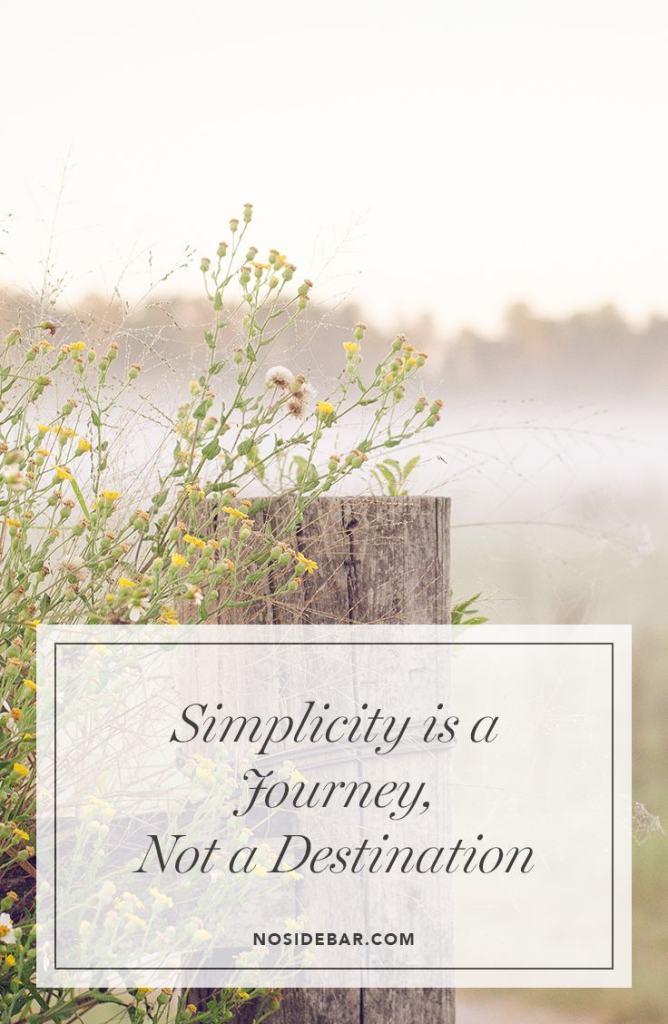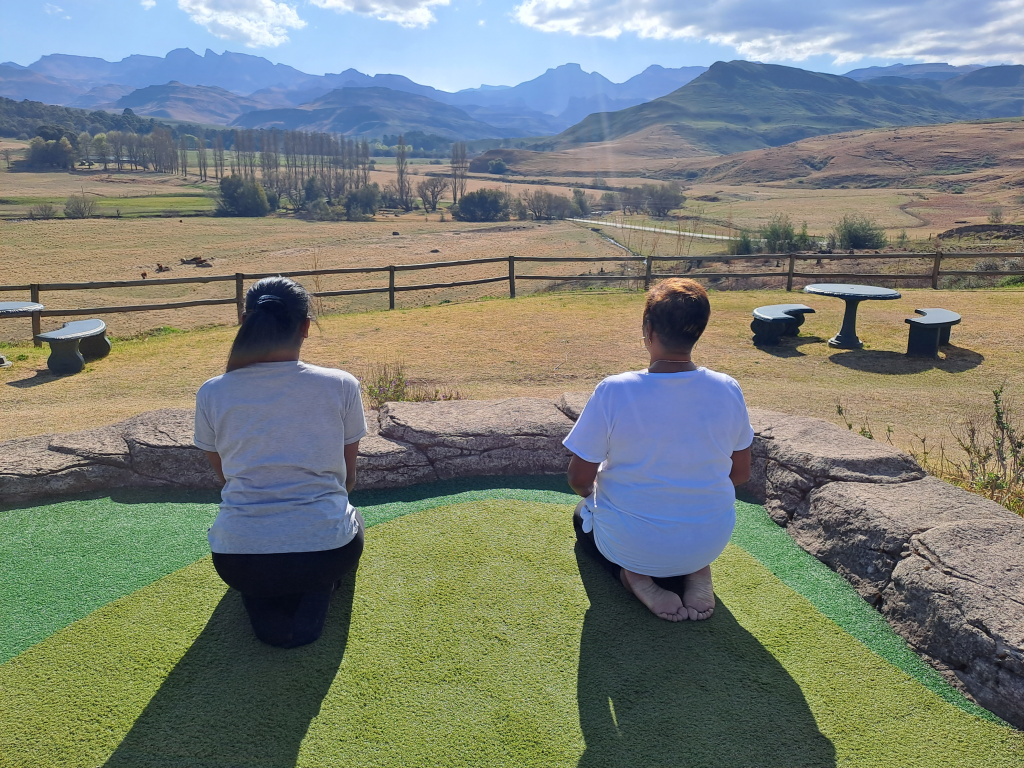Returning to the basics can provide knowledge and lasting satisfaction. In a world of noise, diversions, and incessant demands, simplicity calls us to focus on what counts. This voyage is a purposeful choice to relish the essentials without the extraneous. Living a simple life requires deliberate intention, simplifying our physical and mental spaces, cultivating meaningful connections, and satisfaction in the now. In 150 words, we’ll discuss minimalism using ancient wisdom, current ideas, and practical approaches. You will walk away with the knowledge and the inspiration to begin your own search for a simpler and more meaningful existence, one in which enjoyment is defined by experiences and relationships rather than by material possessions.
| Table Of Contents |
| Self-awareness is the first step to simplifying your life. |
| Begin by paying attention to your daily routines, habits, and thought patterns. |
| Determine your values and base your life decisions on them. |
| Be gentle with yourself as you embrace a simpler life. |
| Set personal and professional boundaries to save time and energy. |
| Simplify your ambitions and set achievable goals. |
| Avoid overloading your life with excessive expectations. |
| Recognize that simplicity is a journey, not a destination. |
| In Conclusion! |
Self-awareness is the first step to simplifying your life.

Life simplification starts with self-awareness. This basic awareness guides you toward a more meaningful life. Recognizing your wants, values, and life priorities might help you eliminate the baggage that impedes your happiness. Self-awareness helps you choose which assets, responsibilities, and relationships support your ideals and which complicate your life. You become aware of the good and bad effects of your actions, enabling you to make healthy choices.
Through simplicity, self-awareness brings clarity and purpose. It helps you say no to distractions, create time and energy boundaries, and appreciate the little, significant moments that frequently go undetected. Self-awareness is the lighthouse that guides you across contemporary life’s stormy waves to a simpler, more deep life.
Minimalism encourages decluttering.
Reducing superfluousness and concentrating on what counts is the essence of minimalism. The goal is to actively choose quality over quantity in material goods and daily life. Minimalism promotes decluttering and getting rid of things that don’t bring us joy. Instead of living without, live with purpose. We escape consumerism and the tension of overaccumulation by doing so.
Minimalism also includes mental clutter as well as physical clutter. A calmer, more concentrated mind results from mindfulness and intentional decision-making. Minimalism emphasizes relationships, personal progress, and well-being over consumerism. Minimalism offers a fresh perspective on what counts in today’s fast-paced, consumer-driven society, encouraging us to live simpler, more focused lives that are clean and emotionally gratifying. It shows that less is more.
Begin by paying attention to your daily routines, habits, and thought patterns.

Starting a simpler life requires focusing on daily routines, habits, and mental patterns. This attention underpins simplicity. Observing these major parts of your life reveals your inner workings and provides useful information. Start each day by reflecting on your routine. Notice how you spend your time, where your energy goes, and any habits that go against your aim for simplicity. Identifying patterns allows for change.
Your thoughts matter too. Recognize ideas that stir up unneeded fears and complications. Awareness allows you to fight these beliefs and replace them with more positive and peaceful ones. In this mindful journey, you may actively change your routines and behaviors to live a simpler life. This technique makes simplicity possible and makes you the creator of your own peace.
Determine your values and base your life decisions on them.
Setting and prioritizing your values guides your life decisions toward authenticity and significance. Your values define what matters to you. They are the foundation for a simpler, happier existence. Personal contemplation is needed to determine your values. Which values, ideas, and beliefs define your true self? Family, compassion, adventure, or creativity? These can guide your decisions once you’ve determined them.
Your values clarify which opportunities, commitments, and relationships align with your highest goals. Aligning your life decisions with your values creates meaning and integrity, minimizing competing priorities. Making decisions that reflect your true self is possible when you live a value-driven life. Your path becomes a purposeful and honest statement of your ideals as simplicity grows.
Be gentle with yourself as you embrace a simpler life.

Self-compassion and kindness are essential while seeking a simpler existence. This transforming path is difficult, and failures are expected. As you journey toward simplicity, be nice and patient with yourself.
Moving to a simpler life entails letting go of old patterns and accepting change. Understanding that mistakes and resistance are part of progress is crucial. Instead of obsessing over failures, learn from them.
Kindness involves appreciating your efforts and achievements, no matter how modest. Honour your accomplishments and relax when required. Self-compassion boosts resilience and determination.
Self-compassion is your constant support in the search for a simpler life, giving you renewed vitality and the knowledge that you are on a transforming path.
Set personal and professional boundaries to save time and energy.
Effective time management and energy conservation require clear personal and professional boundaries. By setting limits, you build a framework that protects your well-being and promotes efficiency and balance. Professional boundaries include establishing work hours, separating work from personal life, and learning to say “no” to preserve a good work-life balance. This keeps you busy at work while giving you time to relax.
Personal limits may include establishing your availability for friends, family, and personal responsibilities. It lets you prioritize self-care and hobbies.
By setting limits, you protect your time and energy, minimize burnout, and preserve balance in your personal and professional life. These boundaries help you live a simpler, more purposeful life where you use your time and energy wisely.
Simplify your ambitions and set achievable goals.

Start simplifying your life by streamlining your objectives and creating attainable ones. It’s a purposeful choice to prioritize what’s important and simplify your route. To do this, you must carefully shape your goals. Instead of pursuing several goals, focus on a handful that align with your beliefs and provide true happiness. Simplification doesn’t imply abandoning your aspirations; it means making them more achievable and meaningful.
Setting realistic objectives reduces stress, keeps you focused, and boosts success. This method allows for gradual improvement and lets you enjoy the trip rather than the goal. Freeing your mental and emotional energies improves your overall health. Simplifying your objectives and choosing attainable ones helps you live a clear, contented life and achieve your greatest dreams.
Avoid overloading your life with excessive expectations.
Avoiding unrealistic expectations is key to simplifying life. In pursuit of pleasure and success, we often set unreasonable goals, causing stress and confusion.
Reducing expectations makes the route more doable and peaceful. Instead of settling for mediocrity, set realistic and purposeful criteria that allow for personal growth and balance. High expectations may damage relationships, inhibit self-acceptance, and perpetuate inadequacy.
A more rational attitude builds resilience and allows for unexpected possibilities and simple delights. Simplifying expectations allows you to enjoy the present and appreciate life’s intricacies. Finding balance, resilience, and tranquility, liberating yourself from unreasonable demands, and letting simplicity bloom in your everyday life are keys.
Recognize that simplicity is a journey, not a destination.

The key is to realize that simplicity is a journey, not a destination. This recognition leads to a simpler existence. Simplicity is a journey of self-discovery, refinement, and adaptability, not a destination. The path to simplicity is about developing a mentality that prioritizes process over product. You’ll face smooth and difficult terrain on this journey, but each step helps you improve. This viewpoint enables you to celebrate modest wins and learn from failures without judgment. It lets you be flexible and adjust your strategy. Being simple as a journey emphasizes life’s fluidity and encourages you to be present and enjoy the experience. You create a life with purpose, mindfulness, and the flexibility to evolve by letting simplicity shine.
In Conclusion!
The quest for a simpler existence requires self-awareness, value congruence, and gentle self-compassion. It begins with examining everyday routines, habits, and cognitive patterns to make value-based decisions. Clear personal and professional boundaries save time and energy, while simple goals decrease stress and increase fulfillment. Avoid setting unrealistic goals, and remember that simplicity is a journey, not a destination. With this perspective, we find significance in the process, enjoy minor triumphs, and learn from failures with self-compassion. In a world of distractions and complexity, minimalism provides clarity, balance, and peace. Simple living is a call to be attentive, purposeful, and truly meaningful, where enjoyment is found in the journey rather than the goal.